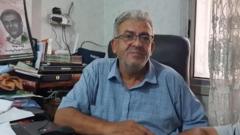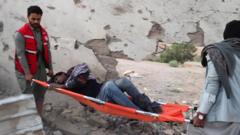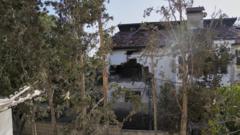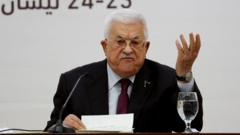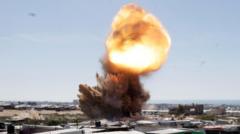Israeli forces have closed three schools run by the UN agency for Palestinian refugees in East Jerusalem, affecting hundreds of students and eliciting international condemnation.
Israeli Forces Shut Down UN Schools in East Jerusalem Amid Rising Tensions

Israeli Forces Shut Down UN Schools in East Jerusalem Amid Rising Tensions
Israeli security actions lead to the abrupt closure of schools for Palestinian students in a troubling escalation of educational rights issues.
Israeli security forces abruptly shut down three UN-run schools in the Shuafat refugee camp in East Jerusalem on Thursday morning, sending hundreds of Palestinian students home just as classes began. The closures, enforced by armed authorities, have drawn sharp criticism from Philippe Lazzarini, Commissioner-General of UNRWA (United Nations Relief and Works Agency), who described the actions as a "blatant disregard of international law" and a denial of children's basic right to education.
The Israeli government imposed a ban on UNRWA earlier this year, claiming the agency has been compromised by Hamas. UNRWA refutes these allegations, asserting its commitment to impartiality. Videos captured students in uniform embracing outside their schools after the sudden enforcement of closure orders. One such order posted on the school's wall prohibited any educational activities, the employment of teachers, and access for students.
UNRWA reported that over 550 children aged 6 to 15 were present at the time of the closures, with one staff member being detained, creating a distressing environment for young learners at risk of losing their educational opportunities.
In addition to the closures in Shuafat, Israeli police were deployed to three other schools in East Jerusalem, further disrupting the educational process and forcing those students to go home too. Lazzarini claimed that these actions constitute a serious violation of rights and called for the safeguarding of educational institutions, which he labeled as "inviolable premises of the United Nations."
The humanitarian implications of these actions have been echoed by the Palestinian Authority, which denounced them as violations of children's rights to education. In response to the situation, the British consulate in Jerusalem, alongside other international representatives from the UK, EU, Norway, Switzerland, Turkey, and Japan, expressed their opposition to the closure orders while standing in solidarity with affected students, parents, and teachers.
Since it began operating in East Jerusalem in 1950, UNRWA has been mandated by the UN General Assembly to provide educational services. However, Israel's parliamentary actions last year that forbade contacts between its officials and UNRWA, as well as prohibiting the agency’s activities in Israeli-controlled territories, signal a stark escalation in tensions surrounding educational and humanitarian efforts in a region marked by longstanding conflict.
Israel annexed East Jerusalem, along with the remainder of the West Bank, in the 1967 Middle East War, a move that remains unrecognized by most of the international community. While Israel regards the entire city as its sovereign capital, Palestinians consider East Jerusalem as the envisioned capital of their prospective state. The current demographic reality reflects an uneasy coexistence, with around 230,000 Israeli settlers residing alongside 390,000 Palestinians in East Jerusalem, amid disputes over the legality of various settlements.








